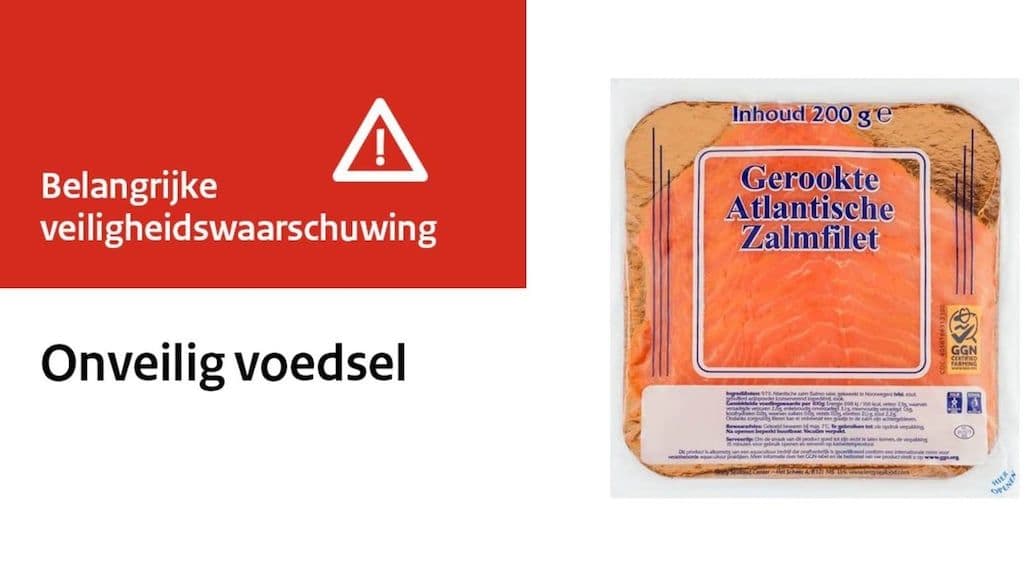When Dinner Delivers Danger: Inside the World of Food Safety Alerts
Uncover the silent threats in your food. This article delves into the world of foodborne illnesses like Listeria, explaining recalls and how to keep your plate safe.
The Unexpected Guest at the Table
Imagine settling down for a meal, perhaps a delightful herring salad or a savory matjes fillet, only to discover that your seemingly harmless dinner could harbor a hidden threat. This isn't a scene from a thriller; it's a very real scenario that recently unfolded for consumers of certain fish products from , a prominent wholesaler based in . A widespread recall was issued for several of their items, including "Hering in Gelee mit Ei," "Kräuterfilets nach Matjesart," and "Bratheringshappen in Gelee." The reason? Contamination with , a bacterium that, while invisible, can turn a pleasant meal into a serious health concern. This incident, publicized through platforms like produktwarnung.eu, serves as a stark reminder that even in our highly regulated food supply, vigilance remains paramount. It prompts us to look beyond the immediate recall and understand the silent dangers that can sometimes infiltrate our plates, transforming a simple meal into a food safety alert.
Listeria's Stealthy Strategy
What makes such a formidable and unwelcome guest? Unlike many other foodborne pathogens that perish easily, possesses a remarkable resilience, thriving even in cold temperatures, which means your refrigerator isn't always a safe haven. This bacterium is incredibly versatile, found in soil, water, and animal feces, allowing it to contaminate a wide array of foods, particularly ready-to-eat items like deli meats, soft cheeses, and, as we've seen, certain fish products. While healthy individuals might experience mild, flu-like symptoms such as nausea, vomiting, and diarrhea, the real danger lies with vulnerable populations. For pregnant women, newborns, the elderly, and those with weakened immune systems, can lead to severe, even life-threatening conditions like meningitis, sepsis, or miscarriage. Its ability to proliferate silently, without altering the food's taste, smell, or appearance, makes it a truly stealthy adversary, underscoring why rapid detection and public alerts are so crucial.
The Recall Revelation: A System in Action
The recent recall by , encompassing specific batches of their "Kräuterfilet nach Matjesart," "Hering in Gelee mit Ei," and "Bratheringshappen in Gelee" with various best-before dates stretching into 2025, isn't a sign of systemic failure. Quite the opposite, in fact. It's a clear indication that our sophisticated food safety mechanisms are working precisely as intended. When contamination is detected, whether through routine testing or consumer reports, a robust system springs into action. Companies, often in conjunction with regulatory bodies, issue immediate public warnings, detailing the affected products by name, weight, batch number, and best-before date. This level of granular detail, as seen with the recall, empowers consumers to identify and remove hazardous items from their homes. Furthermore, the provision of a clear path for restitution, such as contacting [email protected] for a refund, demonstrates a commitment to consumer protection and accountability. It highlights the critical partnership between industry, regulators, and informed consumers in safeguarding public health.
Beyond the Headlines: Empowering Your Plate
While food recalls are vital, they represent the final line of defense. True food safety begins long before a product ever reaches your shopping cart. As consumers, we hold significant power to protect ourselves and our families. Developing a keen awareness of product recalls, by regularly checking trusted sources like produktwarnung.eu or official government food safety sites, is an excellent first step. Beyond that, adopting diligent food handling practices at home is crucial: always wash your hands thoroughly, keep raw and cooked foods separate, cook foods to their recommended internal temperatures, and chill perishables promptly. Understanding the risks associated with certain foods, especially for vulnerable individuals, allows for more informed dietary choices. Ultimately, navigating the complex world of food safety isn't just about reacting to headlines; it's about cultivating a proactive mindset, empowering ourselves with knowledge, and making conscious decisions that ensure every meal is not just delicious, but genuinely safe.
Related Articles

The Unseen Threat on Your Plate: Navigating the Listeria Labyrinth

The Unseen Threat on Your Plate: Navigating the Listeria Labyrinth

More Than Just a Recall: Unpacking the Wiltmann Salami Incident's Broader Implications

More Than Just a Recall: Unpacking the Wiltmann Salami Incident's Broader Implications

From Pantry Staple to Public Hazard: The Unseen Vulnerabilities Behind the Tuna Recall

From Pantry Staple to Public Hazard: The Unseen Vulnerabilities Behind the Tuna Recall

Beyond the Best-By: Unpacking the Unexpected Hazard in Lidl's Waffles
